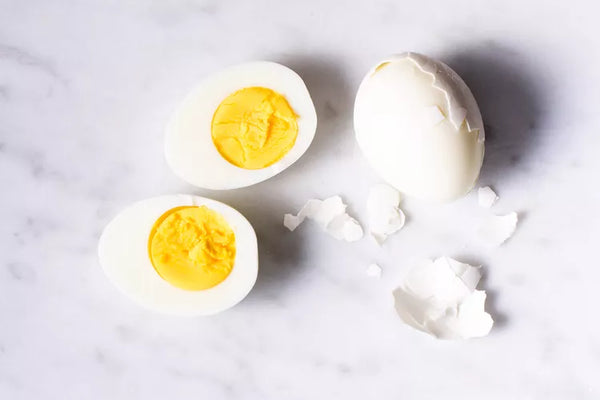
7 Mandatory Nutrients in the Diet Menu of Pregnant Women

You are considering going on a pregnancy diet? If so, don't miss the following information.
When pregnant, the food and drinks that you consume will greatly affect the development of the baby now and in the future. Therefore, many mothers-to-be are looking for knowledge about what can and cannot be eaten during pregnancy.
Read: 10 Vitamins to Get Pregnant Quickly After Menstruation, You Can Try!
The amount of food consumed during pregnancy also affects the weight of Moms and The Little One in the stomach.
As the Little One grows, moms gain weight.
Usually, Moms will also be given weight gain recommendations to accompany the growth of the fetus until birth later.
In the research journal Nutrition in Pregnancy, NICE (National Institute for Health and Clinical Excellence) does not recommend calorie restriction while pregnant.
However, they recommend focusing on achieving and maintaining a healthy weight by eating foods that:
- Contains a powdery substance (whole wheat if possible)
- High-fiber foods
- Eat at least 5 servings of fruits and vegetables daily
Foods high in fat and sugar (including fried foods, sweets, sodas, and some types of drinks) are best avoided.
The diet applies to pregnant women who experience weight problems, for example, underweight or overweight.
Slightly different from the diet carried out under normal circumstances, the diet menu for pregnant women refers more to improving eating habits and ensuring nutrition is fulfilled.
In a day pregnant women need approximately 300 additional calories.
To meet nutritional needs and weight when pregnant at normal numbers, here's how natural diets can be practiced during pregnancy.
Pregnant women are also advised to eat breakfast and keep an eye on the number of servings and how often they eat.
To achieve the ideal weight according to the target, what is the diet menu of pregnant women?
Nutrition Diet of Pregnant Women
In the diet menu of pregnant women, make sure you get the recommended amount of nutrients every day.
Most nutrients can be easily obtained from healthy foods encountered on a daily basis.
However, some nutrients require a large enough amount so it is difficult to fulfill only from food.
To meet the adequacy of daily nutrition, Moms can take special supplements for pregnant women.
Then what are the essential nutrients that must be on the diet menu of pregnant women every day?
1. Folic Acid
Folic acid is one form of B vitamin that is crucial to prevent babies from being born imperfectly in parts of the brain and spinal cord.
This condition is also called Neural Tube Defect (neural tube defect).
Since the recommended daily dose of folic acid reaches 600 mg per day, it is likely that the need for this vitamin will be difficult to meet with food alone.
Most supplements for pregnant women have contained sufficient amounts to meet the recommended amount of folic acid.
2. Calcium
Calcium acts as a mineral that builds the bones and teeth of babies.
If you consume less calcium, the minerals needed by the baby will be taken from the deposits in your bones and given to the baby during pregnancy.
Today, many dairy products are enriched with vitamin D, which is a nutrient that works together with calcium to help the growth of bones and teeth.
The main sources of calcium and vitamin D include milk, fish, cod liver oil, vegetables, and cereals that have been enriched with vitamin D and calcium.
3. Iron
Iron is needed as much as 27 milligrams every day in the diet menu of pregnant women. This number is twice as much as that of women who are not pregnant.
This mineral is needed to make more blood to provide oxygen to the baby.
Too little iron can result in anemia, a condition that causes the body to become limp and more at risk of infection.
Sources of iron from food are meat, legumes, whole grains, cereals that have been enriched with iron, and vegetables with dark green leaf color.
4. Protein
A greater amount of protein is also needed in the diet menu of pregnant women.
In the research journal entitled Diet in Pregnancy, the amount and composition of protein play an important role in the quality of the diet of pregnant women.
Protein deficiency can lead to a lack of weight at birth, a lack of heart weight, increased heart rate, and increased systolic blood pressure.
In general, animal protein is of higher quality compared to vegetable protein.
The study recommends meat be the main source of protein when pregnant.
But mixing several types of vegetables improves the quality of vegetable protein.
Moms don't need to worry because usually, so many protein sources are easy to find making cases of protein deficiency rarely found.
Protein acts as a nutrient that helps build important organs in babies such as the liver and brain.
Examples of foods that contain the protein are legumes, red meat and poultry, fish, and eggs.
5. Nuts
This food group includes lentils, peas, chickpeas, chickpeas, soybeans, and peanuts.
Nuts are a great source of fiber, protein, iron, folate, and plant-based calcium, and all of them are needed by moms' bodies during the diet of pregnant women.
Folate is one of the most important B (B9) vitamins. This is especially important for Moms and babies, especially during the first trimester, and even before.
Moms need at least 600 micrograms (mcg) of folate every day, which can be a challenge to achieve with food alone.
However, adding nuts can help moms get supplements based on doctors' recommendations.
That’s an article about nutrients in the diet menu of pregnant women, hopefully, this article can get you the information that you need to stay healthy!








